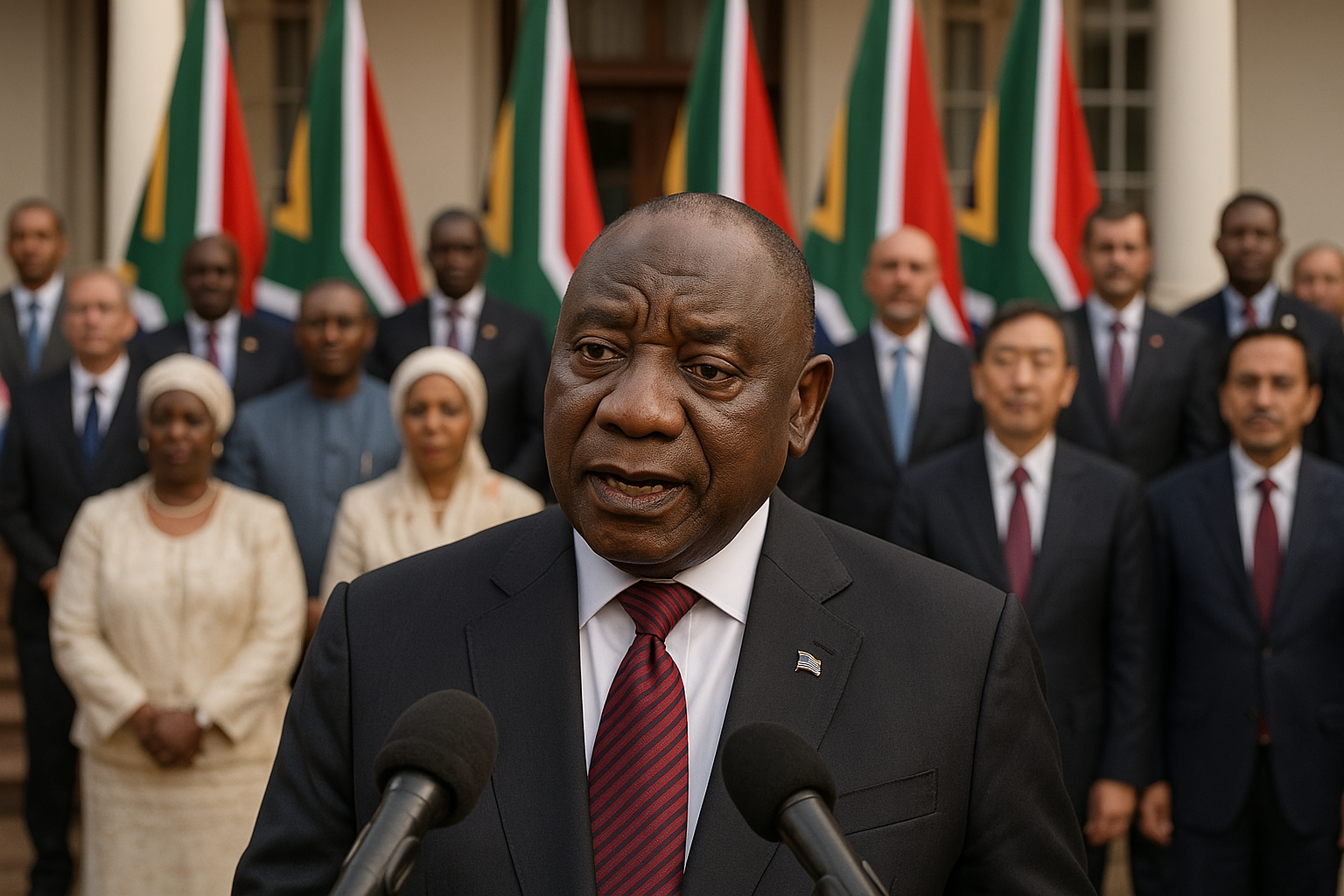Ramaphosa Backs SA Auto Industry Amid Global Shifts, Pushes for Green Growth
Highlighting the historic roots of the industry, the President recalled that the first automotive assembly plants were established in the Eastern Cape in the 1920s.

- Country:
- South Africa
President Cyril Ramaphosa has reaffirmed his confidence in South Africa’s automotive industry, praising its resilience, strategic investments, and potential to anchor the country’s economic future amid shifting global dynamics and rising protectionism. Writing in his weekly newsletter, the President underscored the sector’s pivotal role in job creation, export earnings, green mobility, and youth development.
Despite mounting pressures from external factors such as looming U.S. tariffs and tighter emissions regulations in the European Union, President Ramaphosa said South Africa's auto industry is not only weathering global headwinds but is also driving innovation and progress in sustainable manufacturing.
A Century-Old Sector Fueling Economic Growth
Highlighting the historic roots of the industry, the President recalled that the first automotive assembly plants were established in the Eastern Cape in the 1920s. Since then, the industry has matured into South Africa’s largest manufacturing sector, contributing approximately 5.3% to the national GDP.
“South Africa’s role in global vehicle manufacturing has expanded and grown,” he wrote. “The sector currently supports more than 115,000 direct manufacturing jobs and over 500,000 jobs across the value chain.”
The country hosts global automotive giants like Toyota, Ford, Nissan, Volkswagen, BMW, and Mercedes-Benz, which have established advanced manufacturing plants. These facilities serve both local markets and export destinations, with exports accounting for two-thirds of South Africa’s vehicle production.
Navigating Global Challenges and Tariffs
The President acknowledged the difficulties presented by evolving trade policies, especially the threat of new tariffs on vehicle exports by the United States and the intensifying global transition to low-emission vehicles. These developments necessitate proactive steps to diversify markets and align with global sustainability targets.
“It is critical that we strengthen the sector to not only overcome current headwinds but to ensure its long-term sustainability,” Ramaphosa said.
He stressed the importance of leveraging regional trade relationships, particularly within the Southern African Development Community (SADC), to expand the industry’s footprint on the African continent.
BMW Plug-In Hybrid: A Milestone for Green Mobility
Last week, the President attended the launch of the BMW X3 plug-in hybrid, manufactured at the Rosslyn plant in Tshwane, the exclusive global production site for the model. The launch marks a milestone in green mobility and underscores the country’s readiness to transition toward electrified transportation.
“This investment sends a welcome signal to investors that South Africa remains a favourable place to do business,” said the President.
The BMW investment was part of commitments made during the 2023 South Africa Investment Conference and reflects growing private sector confidence in the local auto industry’s future.
Government Support: Regulatory and Policy Backing
Ramaphosa reiterated that government remains steadfast in supporting the sector through policies designed to enable competitiveness, sustainability, and local production. A key mechanism is the Automotive Production and Development Programme (APDP), which incentivizes high-volume production and localisation of parts manufacturing.
“We are creating a regulatory environment that supports the growth of a globally competitive auto industry,” he stated.
South Africa’s evolving Electric Vehicles (EV) roadmap, combined with initiatives to improve logistics infrastructure and energy supply, are central to positioning the country as a hub for future-ready vehicle production.
Youth Development and Skills Investment
Beyond industrial output, President Ramaphosa lauded the sector’s contributions to skills development and youth employment. He highlighted BMW’s training academy, which focuses on high-tech skills such as EV assembly, robotics, and automation.
BMW is also a founding partner of the Youth Employment Service (YES) — a public-private initiative aimed at creating work opportunities for unemployed youth. The company has provided training and job placements to over 3,500 young people across all provinces.
“We invite more companies to participate in the YES programme as broadly as BMW has done,” the President urged.
The Tshwane Automotive Special Economic Zone (SEZ) has also become a cornerstone of youth development, hosting a Centre of Excellence with an artisan training academy, incubation hub, and STEM education outreach for high school learners.
Building a Green and Inclusive Future
As global markets move toward decarbonisation and advanced manufacturing, President Ramaphosa emphasised the importance of upskilling the South African workforce and fostering local component manufacturing, especially among small and medium enterprises (SMEs).
“We are working to ensure that more production takes place locally, creating more employment. To do this, we must upskill our workforce and facilitate the creation of new companies across the value chain,” he said.
Ramaphosa’s message makes it clear that the auto industry remains a strategic pillar of South Africa’s economy, not just as a source of jobs and exports, but as a launchpad for innovation, inclusion, and climate action.










